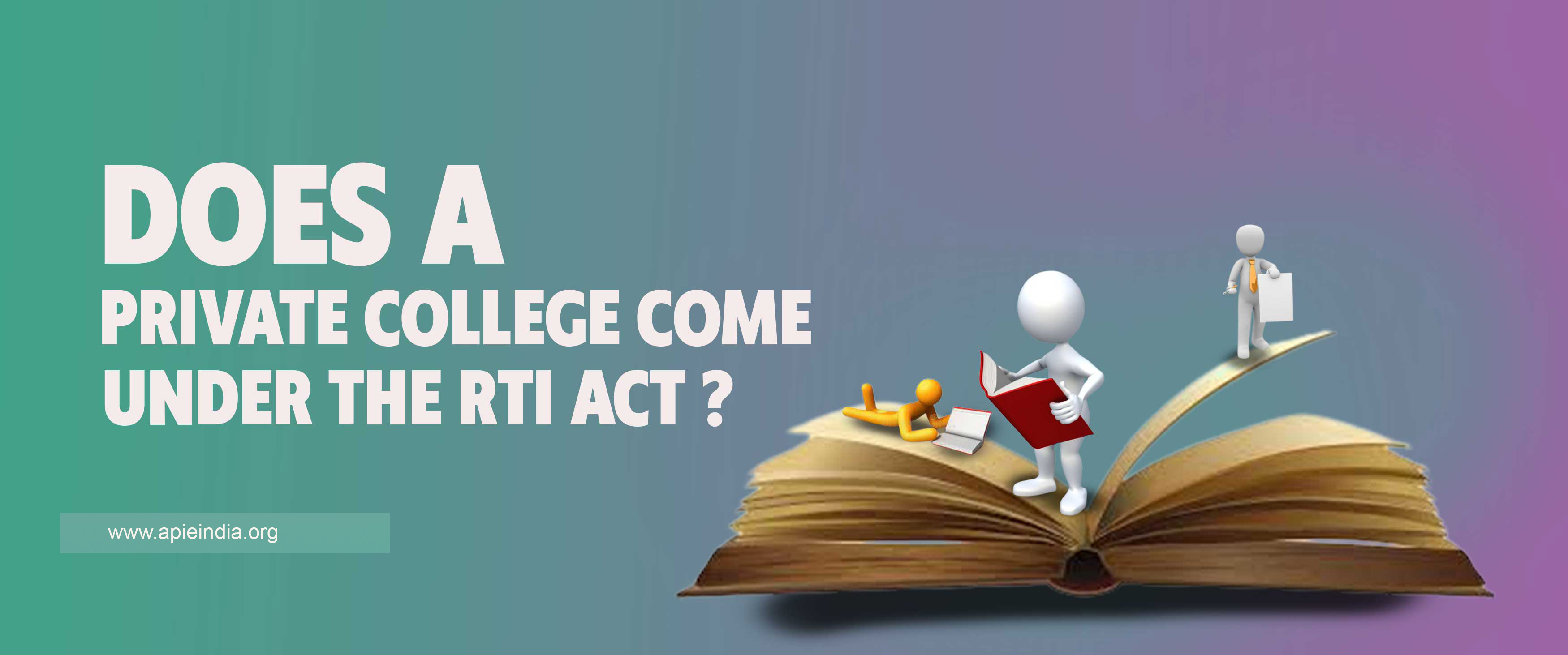Does a Private College come under the RTI Act?

DOES A PRIVATE COLLEGE COME UNDER THE RTI ACT?
The Right to Information Act of 2005 is an Act of the Indian Parliament that governs citizens' access to information. It supersedes the previous Freedom of Information Act of 2002. Except for Jammu & Kashmir, the Act extends to all Indian states and union territories. The RTI Act of 2005 permits citizens to query government secrecy and misuse of authority.
The Right to Information Act applies to schools, colleges, and nonprofits that receive a significant amount of funding from the government. Also, the University Grants Commission (UGC) has implemented the Right to Information Act of 2005 in universities and colleges. However, only private organisations that have been "substantially funded" are covered by the RTI Act, which includes NGOs, schools, and institutions that have received government assistance.
A university or institution must be created by a state statute passed by the legislature or by an act of the federal government to be regarded as a public authority for this Act by the federal government, or by notification from the relevant government, and it must also be owned, controlled, or substantially financed, directly or indirectly, by funds provided by the government. Source
But the Shimla government decided to immediately subject all private colleges, high schools, and senior secondary schools to the RTI Act 2005 to ensure that private educational institutions operate transparently.
They said - The Right to Information (RTI) Act applies to private colleges. Public information officers (PIOs) and appellate authorities must be appointed in line with the Act for all private schools and universities, whether they receive financial aid or not.
However, medical and nursing colleges and schools affiliated with the CBSE and the ICSE are not covered under the notification issued by the government.
Private schools are not directly covered by the RTI Act, though. However, the RTI Act applies to any information held by the government about the management and regulation of private schools. Source
Pune : The Pune bench of the state information commission had declared that private unaided trusts or academic institutions that are not receiving any "substantial financial aid" from the government do not come under the purview of the Right to Information (RTI) Act, 2005.
According to Section 2(J) of the RTI Act, private, unaided institutions and colleges cannot be considered "public authorities," according to the high court's ruling. Source
Lucknow : Since private schools are not funded by the state and are therefore not covered by the Act, they are not required to provide information under RTI. The Supreme Court, on the other hand, determined that if a city's development authority lends land to a private school at a reduced rate, the institution will be considered appropriately funded by the state. Source
New Delhi : The Central Information Commission issued a crucial directive requiring private schools, whether they are under the public authority or not, to disclose personnel data and pay information. The order was issued in response to an RTI request made with the Directorate of Education by an ex-Jindal Public School employee seeking a certified copy of her service book and other information from her former employer. Source
Every state has its own rules and regulations. Therefore, Private colleges are under its indirect authority. Therefore, additional adjustments are required so that the RTI Act can directly apply to all private educational institutions.
2 Comments
Jordan Singer
2d2 replies
Santiago Roberts
4d